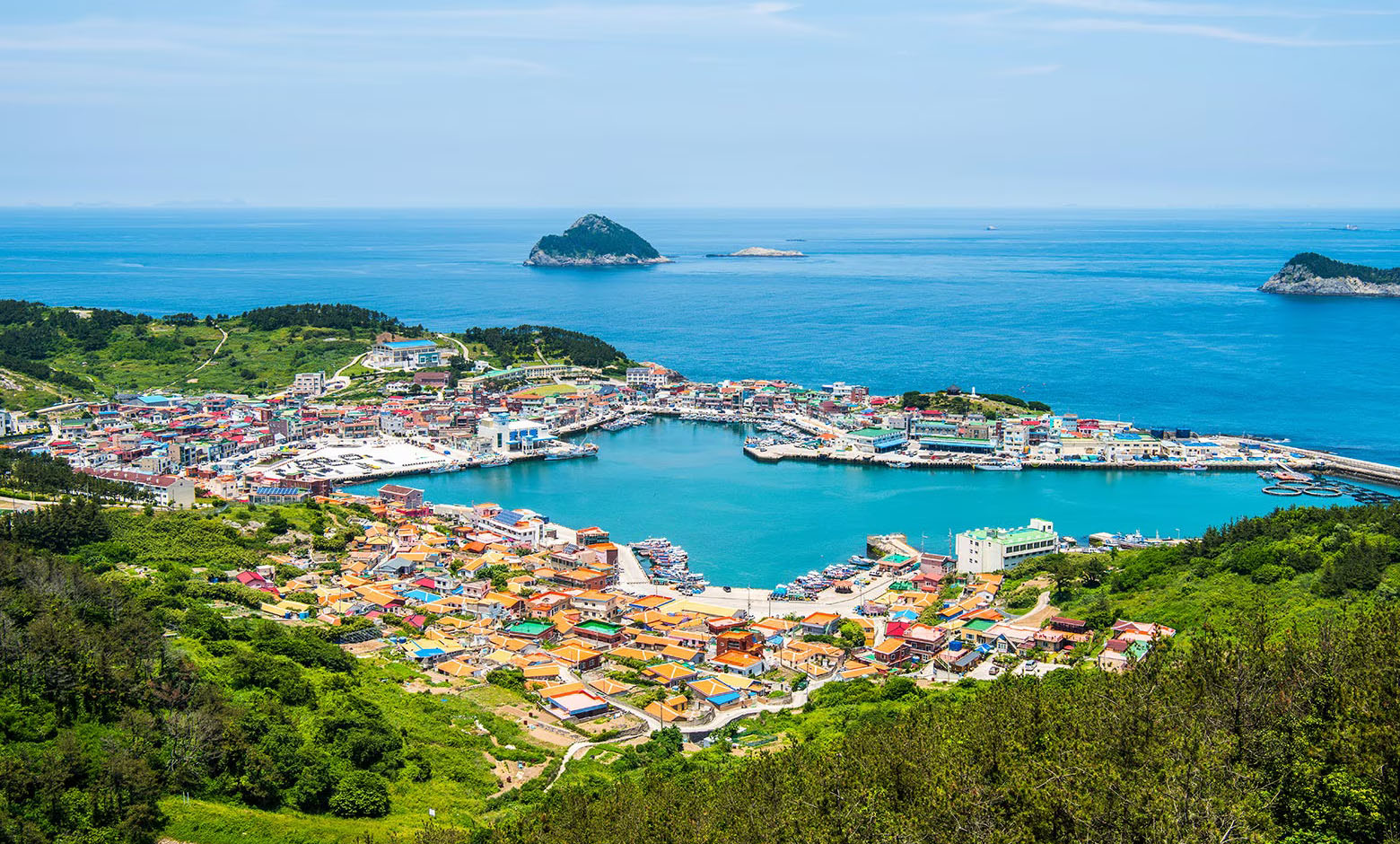
Photo Credit: Getty Images
Jeju Island is South Korea’s largest island, covering an area of 1,833.2 square kilometers. With 1.83% of the total area of the country. It lies in the Korea Strait, south of the Korean Peninsula, and south of Jeolla Province. It is known for its stunning natural beauty and unique cultural heritage.
The island is full of natural wonders, as the island itself was formed by the eruption of an underwater volcano approximately 2 million years ago. It contains a natural world heritage site, the Jeju volcanic island, and lava tubes. The island also has an oval shape of 73 km (east to west) and 31 km (north to south), with a gentle slope around Mount Halla in the center.
The people of Jeju are indigenous to the island, and it has been populated by modern humans since the early Neolithic period. The language there is considered critically endangered by Unesco. It is also one of the regions in Korea where shamanism is most intact.
Jeju Island is a well-known tourist destination due to its unique natural wonders, rich cultural heritage, and finger-licking local cuisine.
It contains Hallasan Mountain,the tallest mountain in South Korea, and a dormant volcano, which is tagged as a UNESCO World Heritage Site. It also offers beautiful hiking trails. Also, it contains the Geomunoreum lava tubes, which are regarded as the finest lava tube system of caves anywhere, with multicolored carbonate roofs and floors and dark colored lava walls.
Also, Jeju Stone Park is a site full of interesting-looking rocks and sculptures that represent the folklore tales passed down from generation to generation. Another view is the Daepo Haen Jusangjeolli cliff, a spectacular rock formation that formed when Hallasan Mountain erupted.
The culture there is fascinating, from the series of rituals performed by village shamans to pray for calm seas and abudant harvest and a plentiful sea catch to the Hanyeo culture,where female divers dive up to 10 meters underwater to gather shellfish without the aid of oxygen masks. Which is passed down to the younger generation.
A variety of local cuisine is served, including black pork, a local delicacy that is often served grilled or on a Korean BBQ. Also, a variety of seafood is served, which is mostly fresh and includes abalone and various shellfish. Also, peanut ice cream is a must-try, as it is a unique dessert you can find on Jeju Island.
Whether you are into hiking, beach lounging, exploring cultural heritage, or trying out the local cuisine, Jeju Island has something for everyone.






















